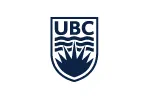

Canada
The University of British Columbia (UBC)| The award | How you will study | Study duration | Course start | Domestic course fees | International course fees |
|---|---|---|---|---|---|
| PhD | Full-time | - | September | 4802 | CAD 8436 per year |
Program Overview
Food scientists integrate and apply fundamental knowledge from multiple disciplines to ensure a safe, nutritious, sustainable and high quality food supply, and to establish scientifically sound principles that guide policy and regulations pertaining to food on a global scale.
Since its inception in 1969, the Food Science Program at UBC has been a leader in providing opportunities for advanced study and research in Food Chemistry and Biochemistry, Process Science, Microbiology, Safety and Toxicology, Biotechnology, Quality Evaluation and Wine Biotechnology. Ongoing research areas include the study of nutraceuticals and bioactive compounds derived from food; biophotonic, nano-biosensing and nano-optical imaging; carbohydrate chemistry and enzymology; molecular biology and metabolic engineering of wine yeasts; farm-to-fork food safety systems; stress response mechanisms of foodborne pathogens; structure-function relationships of food and non-food related enzymes.
What sets the UBC program apart?
The innovative research conducted by UBC Food Science faculty members and students has led to national and international recognition in the form of awards and collaborations with research centres and universities both in Canada and around the world.
The program is uniquely situated in a Faculty that focuses on education and research to address issues around food, nutrition & health, and the responsible use of finite land and water resources to ensure a sustainable and safe food supply. In addition to laboratories equipped for chemical, analytical, molecular biology and microbiological (including Biosafety level 2) based research on food, the program houses pilot plant and sensory evaluation facilities for research requiring food-grade specifications.
Students can also access research facilities at UBC, such as the Laboratory of Molecular Biophysics, BioImaging Facility and Michael Smith Laboratories, as well as through collaborations with other institutions including Agriculture & Agri-Food Canada and the Department of Fisheries & Oceans.
Career Options
Graduates with a PhD degree in Food Science from our program have gone on to pursue successful careers in academia and research at universities, colleges and government research centres. They may hold senior research and/or management positions in multi-national food companies, analytical testing laboratories or consulting companies, or establish independent business or consultancies.
Our graduates are making their mark in numerous parts of the world, including Australia, Britain, Canada, China, Germany, Japan, Mexico, the United States, and many other countries.
Contact The University of British Columbia (UBC) to find course entry requirements.
Below are some suggested courses at other providers that you may also be interested in:
Preparatory Courses in English for Degree Studies (Medical, Business, Architecture and Engineering, Psychology, English and American Studies) UG:Foundation, UG:Foundation, UG:Foundation
University of PĂ©cs
Find out moreFoundation Program in Business Foundation Degree, Foundation Degree
GBSB Global Business School
Find out moreIf you do not meet the entry requirements for this course then consider one of these postgraduate preparation courses from another institution:
There are 317 other courses listed from The University of British Columbia (UBC). A selection of these are displayed below:
Bachelor of Science in Food, Nutrition and Health BSc
The University of British Columbia (UBC)
Find out moreDoctor of Education in Educational Leadership and Policy EdD
The University of British Columbia (UBC)
Find out moreDoctor of Medicine and Doctor of Philosophy MDPHD
The University of British Columbia (UBC)
Find out moreDoctor of Musical Arts in Orchestral Instrument DMA
The University of British Columbia (UBC)
Find out moreJoin the Сưłć´«Ă˝ email list and never miss a chance to turn your study abroad dreams into reality!
